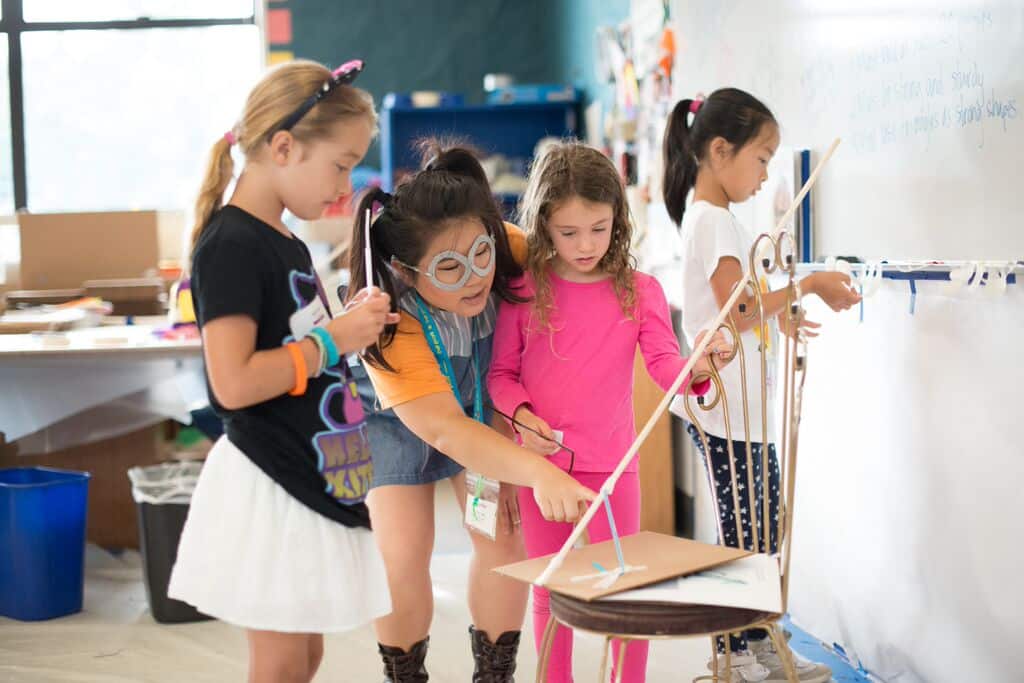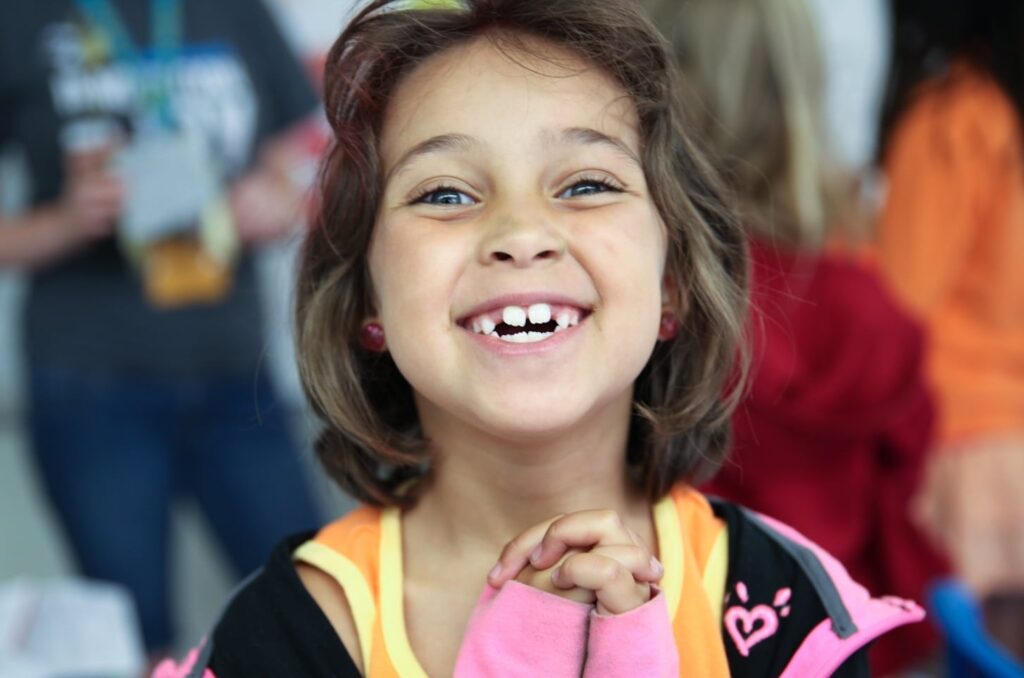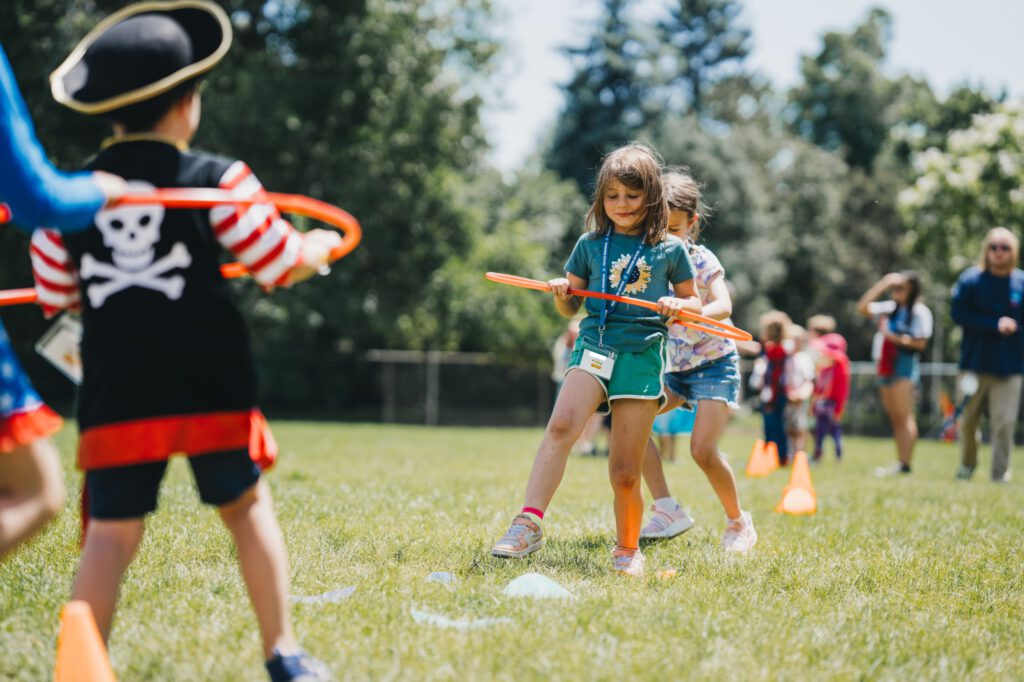“Executive function (EF), defined in its baldest operational terms, is the ability to get something done—and not punch someone in the nose while doing it.” This simple, vivid definition comes from John Medina, developmental molecular biologist and author of Attack of the Teenage Brain!
Executive function skills and self-regulation are key aspects of successful adult life. Their absence in childhood is predictive of struggles to come since executive function skills help us cope with challenges and stressors. In some respects, exercising executive function skills involves balancing automatic responses which may be selfish with intentional, prosocial skills that are more acceptable in school, work and social situations.
EF allows us to make plans, prioritize and transition from one activity to the next. Educators have come to realize that often kids who struggle in school are lacking in this area. So, how do executive function and self-regulation skills develop, and how can parents support their acquisition?
Executive Function Defined
There is no question that kids will need a vast array of skills to function in the information age. These include literacy and numeracy skills as well as basic social, emotional and communication skills. There is a growing focus by researchers, educators and parents on executive function skills. Medina explains that executive function boils down to cognitive control and emotional regulation. Here is a partial breakdown of this complex set of qualities:
Cognitive flexibility
This quality involves the capacity to adapt to changing circumstances or to view something from multiple perspectives or viewpoints. Making connections and solving a problem in more than one way requires cognitive flexibility. The ability to see another’s point of view is critical for maintaining relationships.
Working memory
A short-term retrieval system that allows us to hold and manipulate a small amount of data for a period of time, working memory is critical for solving multi-step math problems or answering questions about what was read. It aids us in navigation and helps us to accomplish goals by remembering directions or action steps.
Impulse control and emotional inhibition
The ability to focus attention, ignore distractions, resist temptations and control one’s responses are examples of impulse control. This quality is key to peaceful interpersonal relationships. We use impulse control to deal with frustrations and adjust when the unexpected occurs.
How Parents Can Help
Ideally, kids start acquiring self-regulation skills in infancy when peek-a-boo and nursery rhymes challenge working memory and help them manage anticipation. Throughout elementary and middle school, they continue to build upon those foundations at school, at home and through their interpersonal interactions. By high school, executive function skills should be pretty well-developed and in sync with the independence required for college and careers.
In his book about the teenage brain, Medina cites research that during the teen years, kids’ academic success is more dependent on their home environment than the school environment. Thus he emphasizes the importance of a stable and supportive home. The great news is that executive function or self-regulation skills are honed and practiced every day and during the course of many common activities, so parents need not feel overwhelmed with the task of helping kids to develop them.
Play games together
With rules to follow and continuous challenges, games are ideal for helping kids develop executive function skills. What could be easier than EF practice disguised as fun? Many games, including Jenga and Battleship, require planning and strategy that necessitate impulse control. Quick response games like Blink test kids’ attention. Memory and concentration games exercise working memory. Chess is a great one for older kids, as it helps with planning and prioritization. The rapidly changing board helps kids develop flexibility of thinking.
Unplug for focus and flexibility
Puzzles are fun and effective for challenging kids of all ages. Crossword puzzles test literacy skills while exercising working memory and cognitive flexibility. Sudoku places a similar demand on numeracy skills. Spatial puzzles provide a 3-D challenge as they build spatial sense.
Enjoy music and dance
Singing, playing an instrument and dancing all require selective attention, working memory and self-monitoring. There is evidence that learning to play an instrument involving two-hand coordination strengthens EF.
Think out loud
Kids learn by example. As parents work through frustrating or complicated situations, processing out loud models the use of EF skills for your kids. Tell them the options for dealing with the challenge, as well as the consequences of each. Hearing your decision process, or better yet, discussing it with you, becomes an active learning process.
Help kids develop study skills
The process of developing personal organization skills and good study habits takes time. Work with kids to gradually take on more responsibility and independence with homework. Assist them with creating a schedule, minimizing distractions and chunking their assignments, then gradually release responsibility to kids as they become more capable of managing their own work.
Get physical
Believe it or not, physical activity is beneficial in the development of EF. Medina recommends aerobic exercise with a bonus for organized sports that add a strategic component. He also advocates following exercises with mindfulness training.
Teach them self-control
One of the greatest gifts we can give our kids is to help them develop self-control. That’s because it is highly correlated with success in life. Having the patience and taking the time to help kids exercise self-control will be an investment in their future success. Help them to wait patiently, to keep their room neat or for a real challenge—to brush their teeth with their non-dominant hand for a week or two. Though seemingly unrelated, this exercise builds self-control in other areas.
How Camp Supports the Development of Executive Function
We build executive function and self-regulation skills through interactions with others, beginning in the preschool years. Summer camp is a fun way to challenge and provide practice for kids of all ages. Kids exercise inhibitory control in group activities as they share, follow rules and wait their turn. When strategy plays a role, the physical challenge and sustained attention required for active games are further enhanced. Trying new things shapes working memory.
An innovation summer camp offers many opportunities to enhance executive function skills. Campers self-regulate as they try on the complex roles of scientist, artist and engineer. The Galileo Innovation Approach®, embedded in every session, teaches campers a process for making ideas become a reality. With a wealth of EF practice included, kids learn to set goals, create an action plan, test their ideas and reflect upon their process. They challenge both their cognitive and self-regulation skills throughout each week-long session.
Giving Kids Tools for Life
Executive function skills, acquired throughout childhood, have been closely correlated with success in life. Convinced of its importance, it is imperative that we are aware and support the development of self-regulation in our kids. Families can develop these life skills through the purposeful inclusion of specific activities that boost cognitive flexibility, working memory and impulse control in kids at each stage of childhood and adolescence. The result: young adults who are prepared for challenges and possess the self-control required to lead healthy lives.



